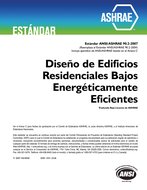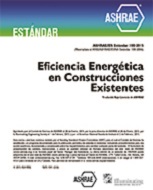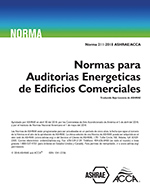Description
The energy used by HVAC systems accounts for a large proportion of a building’s total energy use. Improving the efficiency of an HVAC system would therefore realize significant energy savings. In an HVAC system, operation under maximum load accounts only for a small percentage of the total operating time. Reducing the energy used by the pumping system when the system is under partial load would significantly improve the efficiency of an HVAC system. On the other hand, the supply water temperature of the chilled water circuit is closely associated with the heat-transfer characteristics of the heat-exchanger units. Choosing an appropriate supply temperature would improve the heat-transfer performance of the related components in an HVAC system. Therefore, to clarify the energy-saving effect of the pumps together with the heat-transfer performance of the terminal units, a combined analysis of an assumed chilled-water circuit under four variable-flow control methods at two supply water temperatures were carried out from the viewpoint of available energy, that is, exergy. Subsequently, based on the operating data, the exergy inputs to a real chilled water circuit before and after the variable-frequency transformation of the chilled water pump were compared. The results obtained from the exergy analysis were as follows: (1) Exergy input and exergy consumption under partial load is significantly less than that under full load; (2) The exergy input and exergy consumption with any variable-frequency control is less than that with the throttle-valve control; (3) Among the different types of variable-frequency control, the exergy input is reduced in the following order: constant-pressure control, constant-differential-pressure control, and predictive-system-curve control; (4) The exergy inputs are lower at a supply water temperature of 12°C (53.6°F) than at 7°C (44.6°F); (5) The analysis results based on real operating data are consistent with those obtained through theoretical analysis.
Product Details
- Published:
- 2015
- Number of Pages:
- 8
- Units of Measure:
- Dual
- File Size:
- 1 file , 1.9 MB
- Product Code(s):
- D-AT-15-C005
- Note:
- This product is unavailable in Russia, Belarus




